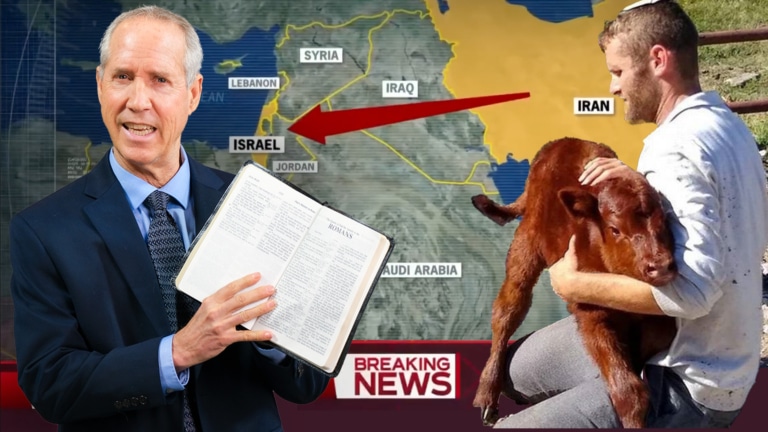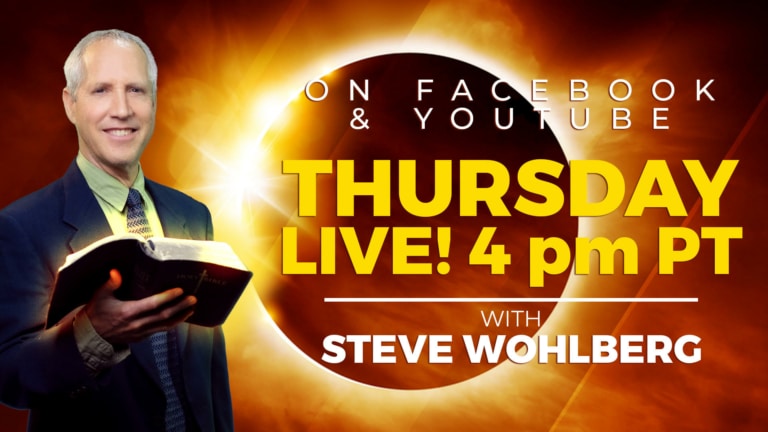Elvis Presley. Marilyn Monroe. Princess Diana. Ronald Reagan. Pope John Paul II – what do they have in common? They’re all famous, and they’re all dead. No matter how large a person’s bank account, or how attractive their physical appearance, or even how close to God they may become in this life, “All things come alike to all: One event happens to the righteous and to the wicked; to the good, the clean, and the unclean… after that they go to the dead” (Ecclesiastes 9:2, 3, italics added). “But in this world nothing can be said to be certain, except death and taxes,” penned Benjamin Franklin. He was correct.
This is part 6 in a series about communication with spirits, what really happens at death, and hell-fire (coming soon!). So far I have built my case that when human beings dies – whether saints or sinners – they are truly dead, that is, they lie unconscious in their graves awaiting the resurrection. To briefly summarize, Solomon said “the dead know nothing” (Ecclesiastes 9:5) and that “there is no work, or device or knowledge or wisdom in the grave where you are going” (Ecclesiastes 9:10). David wrote about “the sleep of death” (Psalm 13:3), Daniel said the dead “sleep in the dust of the earth” (Daniel 12:2), and Jesus Christ emphatically declared that someday “all who are in their graves will hear His voice and come forth–those who have done good, to the resurrection of life, and those who have done evil, to the resurrection of condemnation” (John 5:28, 29). These passages describe man’s condition at death, his sleeping in the grave, and finally – a bodily resurrection back to life.
To repeat what I have written previously, I realize that majority opinion thinks differently. Shortly after Pope John Paul II died at the ripe age of 84, Vatican officials declared that their departed leader was now “looking down from heaven” after being “welcomed into the presence of Jesus.” With all due respect, I don’t think so. If you are Catholic, please don’t take offense. I would say the same thing about my own mother whom I love dearly. Based on my study of the Bible, I believe Pope John Paul II and countless others are not in heaven at this exact moment. Rather, they are silently sleeping in their graves waiting for Resurrection Day.
In my last two posts I examined two biblical passages often quoted to support the common view of ‘instant heaven at death’: 1) Paul’s expression about longing to be “absent from the body” and “present with the Lord” (2 Cor. 5:8): and 2) Jesus Christ’s promise to a dying thief about being with Him in Paradise (Luke 23:42, 43). For those who have read those posts, I think the arguments are convincing. It’s time to examine a few more verses that I believe are often misinterpreted to teach ‘instant heaven’ rather than the doctrine of literal death, unconscious sleep, and future bodily resurrection.
Paul’s “desire to depart and be with Christ” (Phil. 1:23): Paul knew that sometime after he died he would be with Jesus, yet it is an assumption to think that in Philippians 1:23 he meant at the moment of his death. In another letter, Paul clarified that he expected to “always be with the Lord” when Jesus Christ returned to resurrect the dead (read 1 Thessalonians 4:16, 17). It is significant to note that the very last letter Paul penned was 2 Timothy. In that letter’s concluding chapter, notice carefully Paul’s ‘famous last words’:
For I am already being poured out as a drink offering, and the time of my departure is at hand. I have fought the good fight, I have finished the race, I have kept the faith. Finally, there is laid up for me the crown of righteousness, which the Lord, the righteous Judge, will give to me on that Day, and not to me only but also to all who have loved His appearing (2 Timothy 4:6-8, italics added).
Here again Paul clarified – just like he did in 1 Thessalonians 4:16, 17 – that he looked forward to being with Jesus Christ on “the Day” of “His appearing”.
Souls under the altar (Revelation 6:9-11): In the book of Revelation, John beheld under a heavenly “altar” “the souls” of many Christian martyrs calling out for vengeance against their persecutors. “There!” some claim, “There are souls alive in heaven after they died!” But look closer. This entire passage is filled with symbolism. In the same chapter John also saw four horses with riders, the fourth rider being “Death” itself, followed by “Hell” (Revelation 6:1-8). Can “Death” literally ride a horse? Are literal souls crammed underneath a physical altar? Not a very pleasant place to hang out, do you think? Biblically speaking, the idea of martyred souls crying out for vengeance is rooted in Genesis 4 when God told Cain after he murdered Abel, “What have you done? The voice of your brother’s blood cries out to me from the ground!” (Gen. 4:10) Does this mean that Abel’s blood literally muttered syllables through dirt? Obviously not. Again, this is symbolic.
The appearance of Moses and Elijah (Luke 9:28-32): Not long before Jesus died on the cross for the sins of the world, “Moses and Elijah” appeared to comfort the Savior. This supposedly proves that Moses, Elijah, and all the saints are now alive ‘on the other side’. But it doesn’t. First of all, it was not disembodied ‘souls’ that appeared before Christ and His disciples, but “two men” (Luke 9:30) in physical form. Second, Elijah himself never died, but was translated in Old Testament times without seeing death (see 2 Kings 2:11). Thirdly, Moses did die, but Jude 9 implies that “the body of Moses” was at some point raised back to life. In Luke 9:28-32, Elijah appeared representing all those who shall one day be translated at the Second Coming of Jesus Christ, while Moses represented all others who shall be resurrected “at the last day” (see John 11:24). Again, the text says “two men,” not two ghosts. Why did Moses and Elijah appear? To encourage Jesus to go through with His death, burial, and resurrection, and to assure Him that millions of other believers – just like them – would someday be translated or raised from the grave.
At this point, I think I’ve said enough about Death. What about Hell, the mysterious rider on the fourth horse? Is Hell burning now? Will it burn forever? Or will Hell itself come to an end?
What does the Bible really say?
In Part 7 of this series, The Hot Topic of Hell, you will find out!






